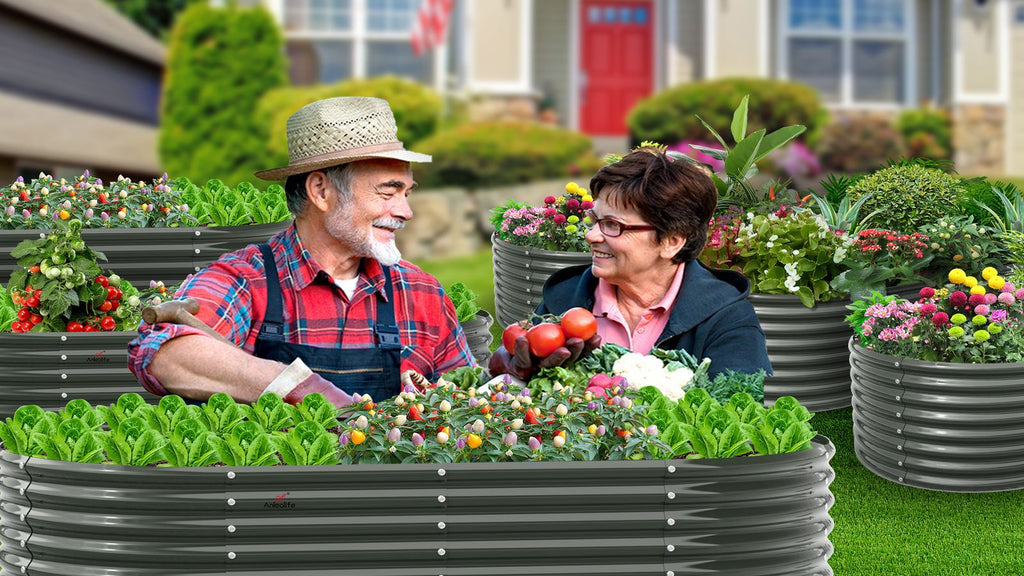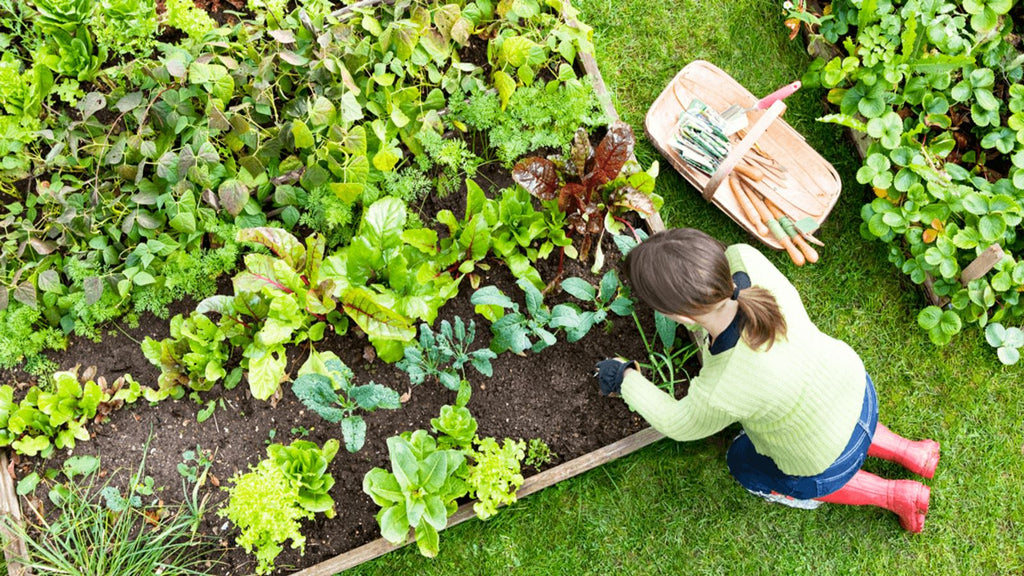
Metal raised garden beds are an excellent option for growing plants during fall and winter. With their durability and ability to retain heat, these beds provide a conducive environment for a variety of crops. In this article, we will explore the 7 best plants that you can grow in your metal raised garden bed during the colder months.
1. Leafy Greens
Leafy greens such as spinach, lettuce, kale, and Swiss chard are ideal for planting in metal raised garden beds during the cooler months of fall and winter. These crops flourish in temperatures between 40°F and 75°F and can even tolerate light frosts down to about 28°F. The thermal properties of metal beds help retain daytime heat and keep the soil approximately 5-10 degrees warmer than the ambient air temperature at night, which can significantly extend the growing season. For quicker growth, consider starting seeds indoors and transplanting seedlings when they are robust enough to survive outdoors.
2. Root Vegetables
Root vegetables like carrots, radishes, and beets excel in the cool, stable temperatures maintained by metal raised garden beds. These crops are best planted when the soil temperature is between 50°F and 65°F. They benefit from the consistent temperature due to the metal's heat retention, which mitigates the cool air's effects on soil temperature. To avoid issues such as rotting, ensure that the soil is loose and well-draining. Utilizing row covers or mulch can also offer added protection, maintaining soil temperature around 2-4°F higher than unprotected soil, which is crucial during unexpected frosts.

3. Herbs
Herbs such as parsley, cilantro, chives, and thyme are particularly resilient in colder temperatures. These herbs can successfully grow in temperatures as low as 40°F. Growing herbs in metal raised beds not only supplies fresh flavors throughout the fall and winter but also contributes to the garden's aesthetic. To enhance their survival rate, plant herbs in areas of the bed that receive midday sun, which encourages warmth and growth even in reduced light conditions.
4. Brassicas
Brassicas—including broccoli, cauliflower, Brussels sprouts, and cabbage—thrive in cooler weather, optimally between 60°F and 65°F. The heat retention feature of metal raised beds is particularly beneficial for these plants, as it ensures a more stable soil temperature, crucial for their development. These crops should be started as seedlings or transplants to ensure robust growth and yield. Ample spacing, approximately 18-24 inches between plants, allows for adequate air circulation and light penetration, critical for their growth.
5. Alliums
Garlic and onions are ideal for fall planting, needing a cold period of at least 40 days below 40°F to develop bulbs. Planting in metal raised beds aids their growth by keeping the soil temperature more even through colder nights. It is crucial to maintain well-drained soil conditions to prevent waterlogging, which can cause bulb rot. Mulching can help regulate soil moisture and temperature, keeping bulbs healthy until they are harvested in the summer.

6. Winter Flowers
For color in the colder months, consider winter flowers like pansies, violas, and snapdragons. These flowers can bloom in temperatures as low as 25°F. The microclimate created by a metal raised bed can help these flowers thrive, extending blooming periods and enhancing frost resistance. Their vivid colors and continual growth can be a highlight in any winter garden, especially when daylight is at a premium.
7. Cover Crops
Integrating cover crops such as clover or winter rye into your garden plan can enhance soil quality by preventing erosion, suppressing weed growth, and enriching the soil with organic matter when turned under in the spring. These crops also protect the soil from the compaction and nutrient loss that can occur during harsh winter weather. Planting cover crops can significantly improve soil fertility for the next planting season, making them a smart choice for maintaining and enhancing your garden ecosystem.
Final Words
With a metal raised garden bed, you can continue gardening even during fall and winter. If choosing the right plants for your garden bed, you can enjoy fresh produce and beautiful blooms throughout the colder months. Leafy greens, root vegetables, herbs, brassicas, alliums, winter flowers, and cover crops are all excellent choices for your metal raised garden bed.

